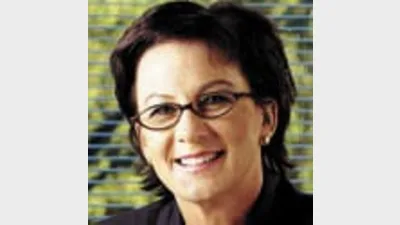SPAA recommends SG opt-out



The Self-Managed Superannuation Fund Professionals Association (SPAA) has submitted a policy suggestion to Treasury, requesting an ‘opt out’ provision to the superannuation guarantee (SG) for those at risk of exceeding the concessional contribution (CC) caps.
The association said today Australians with multiple employers — for example those who engage in contract work and those with multiple directorships — were being unfairly penalised by the system.
SPAA chief Andrea Slattery (pictured) said while the association was a “strong supporter of the 9 per cent superannuation guarantee”, the group had become “increasingly concerned about its unintended consequences” for some super fund members where the CC caps were concerned.
As a result, the association wants to see employees able to ‘opt out’ of the SG where it is evident they are likely to breach the caps. SPAA proposed affected employees be able to elect in writing to their employer to be exempt from the SG contributions, with evidence showing the employees’ CC caps would be exceeded if the contribution were made.
SPAA proposed to Treasury the election should be required to be made each financial year and remain in force for the entire financial year unless revoked by the employee.
SPAA described this as a “commonsense solution” to the “unfair and unjust” taxation of contributions under the CC cap rules.
The controversial CC caps introduced in 2007 restrict CCs to $50,000 per year for those aged 50 or over at 1 July, 2007. From June 30 2012, the CC cap for all age groups will be $25,000. All employers are legally obliged to contribute 9 per cent of an employee’s salary to super, and employers are not required to be aware of the contributions made by other employers of the staff member.
The tax on the amount exceeding the caps can be as high as 93 per cent in some cases, and at a minimum of 31.5 per cent.
SPAA said some of those being affected by contributions from multiple employers include those in the information technology, mining and medical professions, where arrangements which see contractors classified as employees for SG purposes are common practice. People with multiple directorships are also likely to be affected as a result of receiving remuneration from a number of unrelated sources.
Recommended for you
Data and technology provider Novigi has acquired Iress’ superannuation consulting and managed services business from Apex Group.
AMP is to launch a digital advice service to provide retirement advice to members of its AMP Super Fund, in partnership with Bravura Solutions.
Unveiling its performance for the calendar year 2024, AMP has noted a “careful” investment in bitcoin futures proved beneficial for its superannuation members.
SuperRatings has shared the median estimated return for balanced superannuation funds for the calendar year 2024, finding the year achieved “strong and consistent positive” returns.








